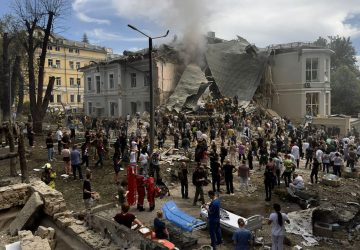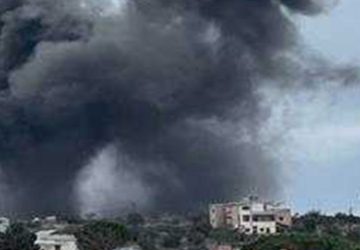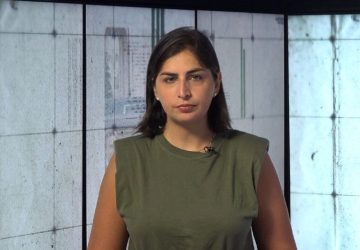While the international community remains divided on the solution to the Gaza war, fierce fighting continues in the southern enclave. Under sustained bombardment from the Israeli air force, nearly 20,000 infants have been born ‘in hell,’ according to UNICEF spokesperson Tess Ingram.
Negotiations persist between Israel and Hamas to achieve a new ceasefire, during which new hostages and prisoners are expected to be released on both sides, as reported by the Egyptian newspaper ‘Asharq Al-Awsat’, citing Egyptian sources. These sources state that “this new ceasefire is not an alternative to the plan proposed by Egypt to achieve a cessation of hostilities in Gaza.”
In late December, Egypt had proposed a new three-stage plan for a truce and the release of hostages. The first stage involved a two-week renewable ceasefire in exchange for the release of several hostages and prisoners on both sides. The second stage was the establishment of a “Palestinian national dialogue” under Egypt’s auspices to unify Gaza and the West Bank. The third stage involved a complete ceasefire and Israel’s withdrawal from Gaza.
On the ground, Israeli bombings continued on Friday in the Gaza Strip, where the Israeli Army is focusing its ground combat in the city of Khan Younes, where, according to Israel, many Hamas members are hiding.
According to the Gaza Health Ministry, Israeli strikes had killed 77 people in the besieged territory by midday.
The Palestinian Red Crescent reported residents injured by Israeli drones “targeting citizens at al-Amal hospital’ and its headquarters in Khan Younes.”
Israeli troops who entered Gaza on October 27 have advanced from north to south, where hundreds of thousands of Gazans had fled in the early weeks of the conflict.
The Army, which announced a toll of 194 soldiers killed in Gaza on Friday, claims to still be facing isolated Hamas fighters in the north.
Additionally, sirens sounded in Haifa for the first time since the beginning of the war, and an explosion was heard there.
‘In Hell’
Commenting on the war in Gaza, the head of the World Health Organization (WHO), Tedros Adhanom Ghebreyesus, lamented “inhumane living conditions.”
The approximately 2.4 million inhabitants there lack everything and have been without phone service and internet for a week, the longest outage since the start of the conflict.
In the evening, the Palestinian operator Paltel announced a ‘gradual return of telecommunications’ in this regard.
Meanwhile, UNICEF spokesperson Tess Ingram emphasized that nearly 20,000 infants have been born “in hell” since October 7 under conditions “beyond comprehension.”
The UN also highlighted Israel’s arrest of thousands of Gazan men since the start of the war. These individuals have often been subjected to mistreatment that could amount to torture, denounced the UN. However, the Israeli Army told AFP that the detainees are treated “in accordance with international law.”
Biden-Netanyahu Meeting
For the first time since December 23, US President Joe Biden discussed the conflict with Israeli Prime Minister Benjamin Netanyahu on Friday, according to his administration,
Joe Biden “still believes in the possibility” of a Palestinian state but “acknowledges that it will take a lot of work to get there,” said White House spokesperson John Kirby on Friday after the meeting of the two leaders.
The White House also expressed “deep concern” over reports from the Palestinian news agency ‘Wafa’ about the death, in Israeli gunfire, of a 17-year-old Palestinian, reportedly holding a US passport, near Ramallah in the West Bank.
Russian diplomacy, on its part, called on Hamas during talks in Moscow on Friday to release its hostages, describing the humanitarian crisis in Gaza as “catastrophic.”
“The Russian side insisted on the need to promptly release civilians captured during the attacks of October 7, 2023, and held by Palestinian factions,” said the Russian Ministry of Foreign Affairs after a meeting between Russian Deputy Minister Mikhail Bogdanov and Moussa Abou Marzouk, a member of the Hamas political bureau.
These discussions aimed, in particular, to “clarify the position (of Hamas) and its policy on the issue” of hostages, according to a statement from the Palestinian Islamist movement released after the meeting.
“Means of achieving a ceasefire” in the Gaza Strip were also discussed, according to Hamas, which claims to have received Russia’s support “on the rights of the Palestinian people.”
Israel will let shipments of flour for Palestinians through the Israeli port of Ashdod, north of Gaza, the White House said on Friday after President Joe Biden and Prime Minister Benjamin Netanyahu spoke.





